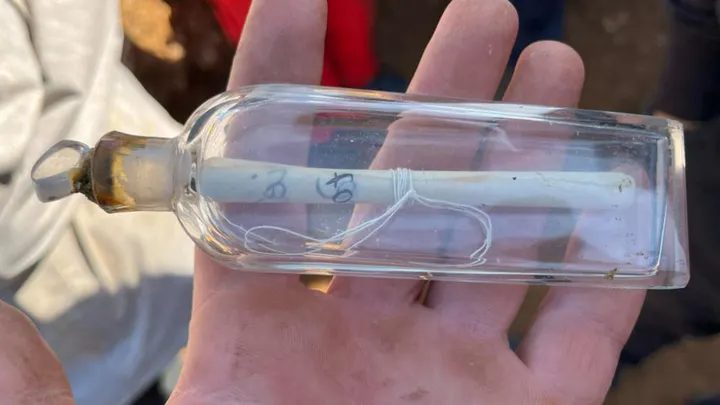Imagine unearthing a message in a bottle from 1825, not on some tropical beach, but in the ruins of a Gaulish village perched atop cliffs in northern France. Pretty cool, right? Well, that’s exactly what happened when volunteers stumbled upon a tiny glass vial buried deep in the remnants of this ancient settlement. Inside was a neatly rolled note written by the French archaeologist P.J. Féret, and it’s giving all of us history buffs goosebumps.
Researchers discover nearly 200-year-old message in a bottle: 'Absolutely magic moment' https://t.co/iRolxB1Z3Z #FoxNews
— Ramona Eid (@RamonaEid) September 22, 2024
Now, let’s set the stage: the site where this discovery was made is called the Cité de Limes, also known as Caesar’s Camp. This place dates back over 2,000 years and was home to the Gauls, those fierce warriors the Romans loved to fight. But erosion and time have chipped away at the village, literally crumbling it off the cliffs. Enter Féret, the original Indiana Jones of Dieppe, who came here in 1825 to dig up history. And apparently, he figured he’d leave a little something behind for us future archaeologists to find, almost like a ghost whispering through time, “Hey, you’re not done yet!”
His message? Not a dramatic confession or treasure map (unfortunately), but a humble statement that he was part of several scientific societies and continuing his research at the site. And you know what? There’s something profound in its simplicity. It’s like he knew that someday, people would come back, brush off the dirt, and pick up where he left off. Call it professional courtesy across the centuries.
Guillaume Blondel, head of archaeology for the town of Eu, described the moment as “magic.” Yeah, I bet! Finding a 200-year-old message buried on purpose feels like stumbling into a time warp where the past just reached out and gave you a high-five. Blondel even pointed out that it’s unusual for archaeologists to leave behind these kinds of time capsules. Typically, they assume their work is the final word on a site. But Féret, with a sly grin across time, clearly had other plans.
This discovery is a reminder that no matter how much we think we know, history always has another trick up its sleeve. It’s like the past saying, “Hey, don’t get too comfortable with your textbooks.” Féret’s note isn’t just about what he did—it’s a call to keep digging, keep exploring, because the past isn’t done revealing itself just yet.




If it was such an intriguing message why didn’t you put it in your article? The entire article was a lot of blah, blah, blah with no substance.